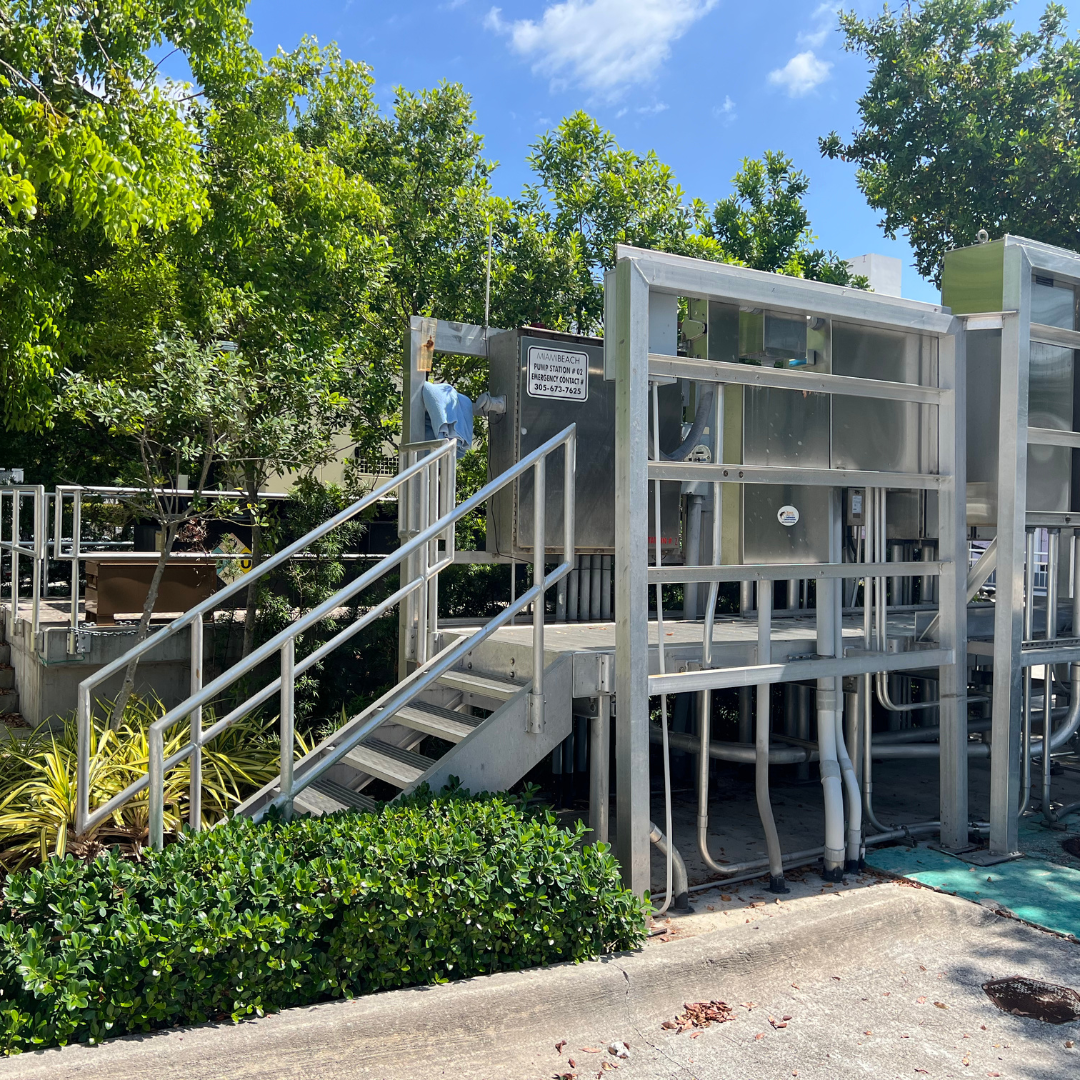
Stormwater, or urban runoff, is the rain and tidal water that flows over driveways, lawns, sidewalks and streets. As this water flows over these surfaces, it picks up debris, chemicals, fertilizers, auto fluids and other pollutants before entering into the stormwater system.
Stormwater Management
The city has a Municipal Separate Storm Sewer System (MS4), meaning the city's stormwater system is completely separate from the sanitary sewer system to avoid cross-contamination. The stormwater system is designed to drain the city of water during rainfall and high tide events to minimize flooding. The stormwater system carries the runoff through a system of interconnected pipes and structures before depositing the runoff into Biscayne Bay and the surrounding waterways.
Water Quality
The city’s stormwater management program was developed to keep our streets dry while protecting and improving the health of our waterways. Our multifaceted program focuses primarily on reducing pollutants through public education, daily street sweeping, and other good housekeeping practices.
For example, the city has transitioned from septic systems to a public sanitary sewer system and has an ongoing Sanitary Sewer Evaluation Survey program to identify and repair sanitary system breaks. The city is also upgrading its stormwater system with pollution control devices to trap and remove pollutants from stormwater before it is discharged.

The Environmental Protection Agency’s National Pollution Discharge Elimination System (NPDES) program establishes water quality standards and regulates discharge from point sources of pollution such as municipal stormwater systems. The NPDES program also requires operators to develop best management practices that improve the quality of stormwater discharges. The city’s stormwater system is allowed to operate through an NPDES permit that covers Miami-Dade County and over 30 local municipalities.
Learn more about the Miami Beach's Stormwater Program.

